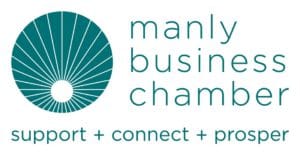Coronavirus Reveals the Risks of Working in the Gig Economy
Uber, Deliveroo, Airtasker . . . what do these companies have in common? They all involve gig workers who are engaged on a pay-per-task basis for a range of activities from driving to food delivery and furniture construction. And they have another big thing in common: their workers have no safety net. If they fall sick or are unable to work, they don’t get paid. As Australia starts to feel the impact of measures to slow the spread of coronavirus, gig workers are increasingly vulnerable.
An estimated 700,000 Australians regularly work in the ‘gig’ economy – that’s around 5% of the workforce. For individuals, flexibility is the big selling point. They may be able to work from home, or balance gig work with another job, study or childcare responsibilities. Working gigs can be a good money earner, especially for highly skilled workers, such as lawyers, web designers and business consultants. But, all too often, jobs in the gig economy are unregulated and low paid (far below the standard minimum wage).
The Impact of COVID-19 on Gig Workers
The rise of COVID-19 is already having a massive impact on gig workers across Australia. Drivers are losing customers as more people choose to work from or stay at home, on top of the loss in earnings due to the cancellation of big events such as Vivid Sydney and the Australian Grand Prix. Other independent contractors are hard-hit too as financial uncertainty causes clients to batten down the hatches. Some, however, such as food couriers, are finding that demand for their services is skyrocketing as people opt to avoid shops and restaurants.
The Risks They Are Running
Many gig workers depend on making enough earnings in a week to pay for rent, bills and shopping. So, the chances are that they will take the decision to work even if they are sick. Or, they may be virus-free but come into contact with people who may not be, such as the customer in self-isolation who has ordered a takeaway meal, or the passenger who is taking a lift home from the airport after a holiday overseas. Gig workers face huge risks both to their own health and that of their customers, but with no safety net in place they need the jobs to stop them from going under.
What Support Can Gig Workers Expect?
Businesses such as Uber and Deliveroo that rely on gig workers are responding to the situation. Uber’s website currently states that they will be providing ‘financial assistance’ to any driver who has been diagnosed with coronavirus, although it doesn’t specify how much assistance. While there is no mention of a similar commitment on the Deliveroo site, the takeaway delivery company is promoting ‘contactless delivery’ where customers can request drivers to leave food deliveries on their doorstep and stand a safe distance away while they collect them.
Meanwhile, the government recently announced that gig workers, along with casual workers, may qualify for sickness allowance, which provides up to $560 per fortnight for singles without children and up to $504 each for partners. It has also waived the one-week waiting period for individuals claiming the allowance. This allowance is means tested, however, based on individual or combined income and assets.
Although these initiatives go some way to contributing to the costs of gig workers who are sick and in self-isolation, they do not compensate for loss of earnings. And they don’t compensate for the loss of earnings of otherwise healthy gig workers who are faced with a steep decline in business in the months ahead, especially if Australia goes into lockdown.
Without further support it is likely that many gig workers will struggle to make ends meet. The outbreak of coronavirus has exposed the very real risks of making a living in the gig economy.









